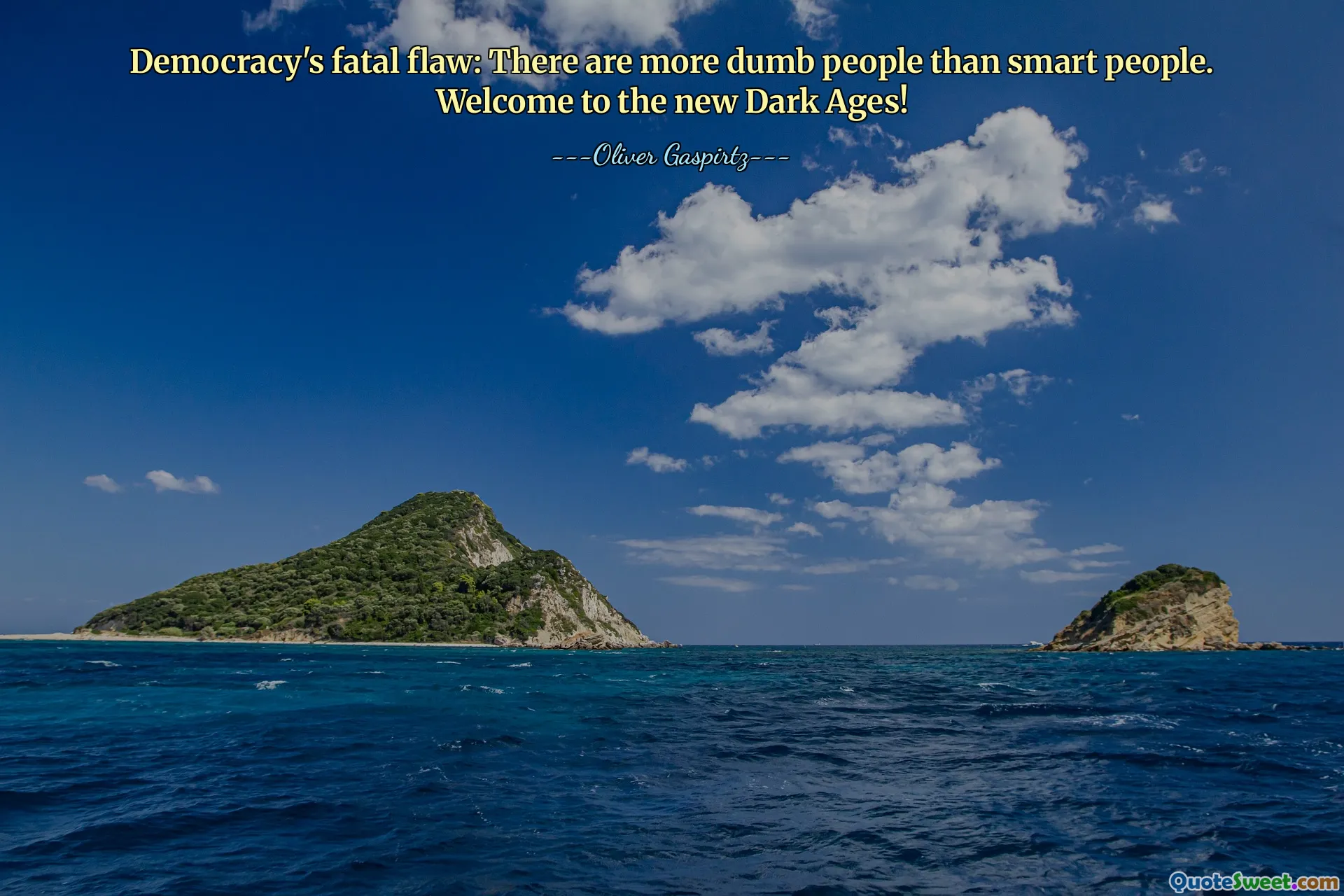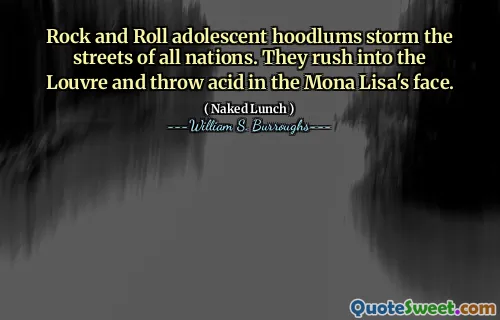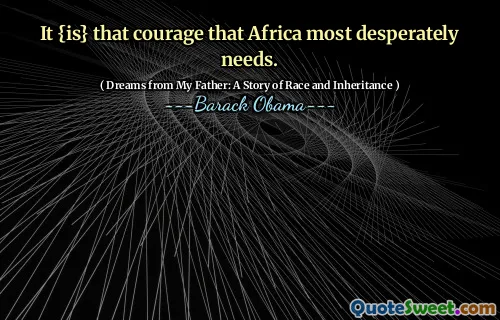
Democracy's fatal flaw: There are more dumb people than smart people. Welcome to the new Dark Ages!
This quote offers a provocative critique on the nature of democracy by suggesting that the system’s fundamental weakness lies in the electorate's composition—more specifically, the assertion that the majority may lack the intelligence or insight required to make thoughtful decisions. The phrase "new Dark Ages" evokes a sense of decline or regression, implying that society may be heading toward a period characterized by ignorance or poor governance as a result.
While the quote is stark and certainly contentious, it raises important questions about the relationship between political power and the distribution of knowledge or wisdom among the population. Democracy hinges on the principle of equal participation, but it also relies on the electorate's ability to make informed and thoughtful choices. If the majority of voters are uninformed or swayed by misinformation, it could indeed lead to suboptimal political outcomes.
Despite its bluntness, the quote acts as an invitation to reflect on how to improve democratic processes. Education, critical thinking, media literacy, and facilitating meaningful public discourse could bolster the quality of decision-making in democratic societies. Democracy’s strength lies not only in the equality of votes but also in the empowerment of voters with the knowledge and tools necessary to exercise that vote wisely.
In sum, while the quote may seem cynical, it underscores an ongoing challenge: nurturing a society where democratic participation is coupled with informed, rational engagement to avoid regressive cycles in governance and collective well-being.
---Oliver Gaspirtz---










